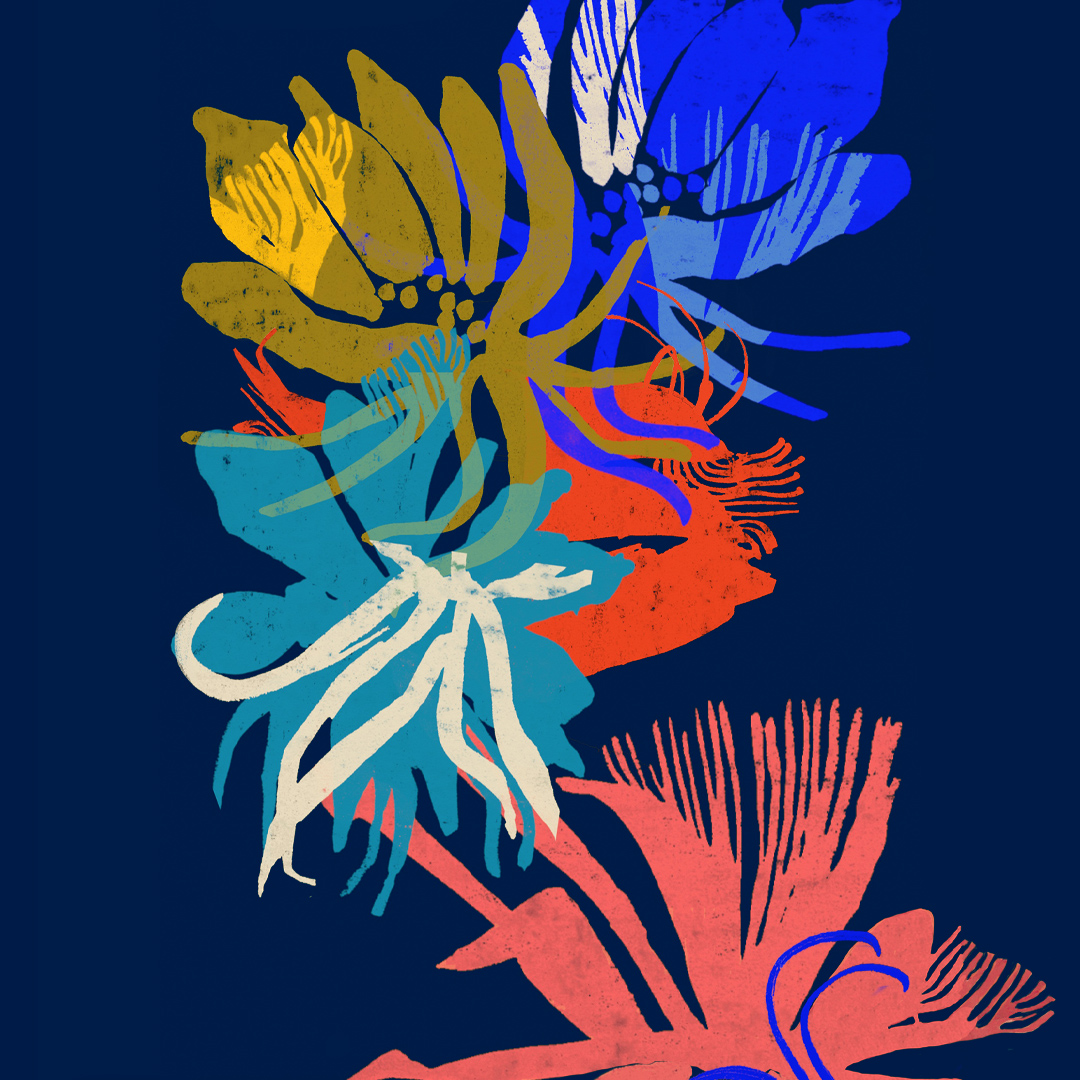Border Dreams: An Essay by Mesha Maren
Author Mesha Maren follows up her critically acclaimed debut Sugar Run, with the ambitious and totally engaging Perpetual West. Exploring the impact of cultural influence and geographic differences, Perpetual West builds a suspenseful story of how harrowing events can bring our true selves to the surface. Here, Mesha tell us how she came to write her new novel.
…
In the low light from the bus window the ring looked fragile. A pale blue wink in the man’s palm. “You should take it,” he said. “It was meant for true love.”
I can’t remember his name now, Billy or Bobby or Brian, but surely, I knew it then. We’d grown close in that way that travel can cause, especially forty-seven-hour Greyhound bus travel when you are twenty-one years old. By Atlanta we’d swapped destination stories. He was headed to Big Spring to open a car repair shop with his brother. I was going to El Paso to reunite with the woman I loved, Lia, who had signed up for a college exchange program just across the border in Juárez.
By the time we entered Texas the next afternoon, Billy and I had both admitted our stories weren’t as neat and clean as all that. Billy’s brother didn’t know he was coming. Until two days before, Billy had been happily engaged and working at Jiffy Lube, saving money to buy a double-wide. When he found his fiancée in bed with her ex, he’d taken her ring and hopped on the bus. I admitted to him how I felt like I was always chasing after Lia—always a few steps behind, trying to catch up and get near her, never quite sure how near she wanted me. I told him only the tip of it, though, playing it off and letting the real fear settle lower down.
“Take it,” Billy said, and tipped his hand to me.
The ring was tiny and so light but as I tucked it into my jeans, I worried about omens and bad vibes, the weight of someone else’s lost dream.
When the bus pulled into El Paso at 1:30 in the morning, Lia was waiting for me. She kissed me and threaded her arm through mine.
“We can cross the border up here,” she said. She had come to Juárez a month before me to start classes while I worked to save up money. I did not plan on going to college.
El Paso was dark and quiet but already I could see the lights of Juárez up ahead. I thought to tell her about Billy but it felt like a bad way to start off.
“I want you to meet someone,” she said, smiling at me as we walked across the Puente Santa Fe, the Rio Grande a dribble below us.
I was exhausted.
 “I know you’re probably tired,” she said, “but it’s not far.”
“I know you’re probably tired,” she said, “but it’s not far.”
She had told me about him over the phone, her new friend, a punk who ran an info shop and community center with a bunch of other radical working-class kids in a colonia outside downtown. Her voice had kicked up each time she said his name, Tubi. He’d just started training to become a professional wrestler and worked nights at a little cigarette-liquor-sex-toy shop on the tourist strip.
The lights inside the shop were all neon pink and red. Lia let go of my arm. Tubi, she said. A guy with lank green hair looked up and smiled a big beautiful smile and then she was moving away from me and I knew it, I really did, but I was so tired, scared, and hungry that I didn’t let myself admit it for another three weeks. Even then it was just an inkling. It wouldn’t be until almost Christmas that I would scream at Tubi in the early-morning beer-bathed Juárez streets.
I wanted to write about this time in my life beginning all the way back on that bus with Billy, the oil wells pumping out the window and our fears floating around us only half said. I took notes every day that year as my heart broke and my brain exploded. I took notes as Lia drifted away from me, took notes as I waitressed in Café Mayapan and volunteered with La Mujer Obrera, a community-organizing center in El Paso run by labor rights activists who had formerly worked as seamstresses in pre-NAFTA denim factories. I took notes about the US/Mexico relationship and the ways that we wound our neighboring country, the vicious repercussions of trade deals and immigration policies and the hundreds of thousands of guns sold south each year. I was learning and feeling so much so fast. I remember wanting this period of my life to be over already, the growing pains of it, but at the same time, I wanted it to never end—or maybe more so, I wanted to capture it somehow before it did end. I wanted to capture how all of this new political awareness was wrapped up in bittersweet love and the thundering propulsion of youth, drunk nights of immortality and heavy mornings of new consciousness, the way that everything felt so personal and so enormously beyond me all at once.
I stayed there at the border even after Lia’s program ended and she left. I stayed because I knew there was still more for me to learn and because there was something both incredibly new and at the same time familiar about Juárez and the way that Juárenses love their home so deeply despite the difficulties. It reminded me of my home in West Virginia, the way that outsiders act like it is only a place to get away from, only a place to leave behind. It reminded me how loving a place that is hard to love can make you love it with an extra ferocity.
I tried to put all of this into words while I was there in El Paso and for years afterwards.
I tried to write it as it happened, from my perspective, and it was terrible. I couldn’t make it sing, couldn’t make it taste like it had then. I put it away for a very long time and wrote a novel, Sugar Run, instead. It stayed with me, though, everything I had learned from Tubi and the women at La Mujer Obrera, the neon nights and limestone mountains, ska bands and border guards and mistranslations and the heartsick glory of being twenty-one, in love, and newly politicized. When I finally decided, in the fall of 2015, that I had to try once more to write about it, I Facebook-searched Tubi. And there he was, that same huge smile, only now he was a professional wrestler signed with Mexico’s second-largest promotion company. When I reached out, he remembered me.
The following summer I traveled to Juárez. Tubi showed me all the arenas where he had trained, and he spoke openly about how much the cartel violence had affected him, his family, the wrestling world, and all of Juárez. He invited me to Mexico City to watch him fight and I spent six weeks shadowing him there. It was during this time, as I walked the streets of Colonia Doctores, that the character Mateo, the wrestler in Perpetual West, began to emerge for me. And it was through the conversations I had with Tubi that I realized what I wanted to write about was my own truth but told slant. What I wanted to explore was an idea in conversation with novels like A Sport and a Pastime, The Sheltering Sky, and Under the Volcano, a question perhaps best articulated by Pico Iyer when he said of The Quiet American, “the novel asks every one of us what we want from a foreign place, and what we are planning to do with it.”
In Perpetual West I was finally able to take my own experiences and filter them through a fictional lens until they broke apart and came together again. I was able to not only capture the powder keg of young love and new political awareness but also inspect and explode American cultural myths and fantasies about Mexico and the border. I was able to ask Iyer’s question of Elana, an English major disillusioned with academia and struggling to form an identity for herself outside the roles of daughter and wife, and Alex, a graduate student in sociology who is studying lucha libre and hungry to learn about Juárez, where he was born. I was able to ask again and again: what do Americans want from Mexico, and what do we plan to do with it?
…





